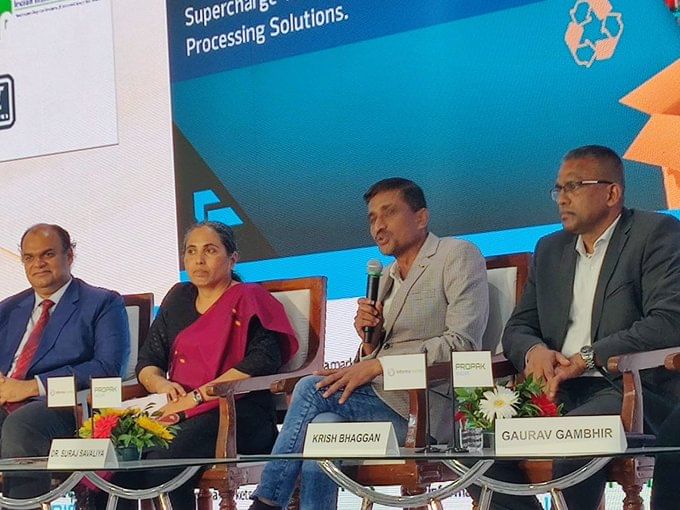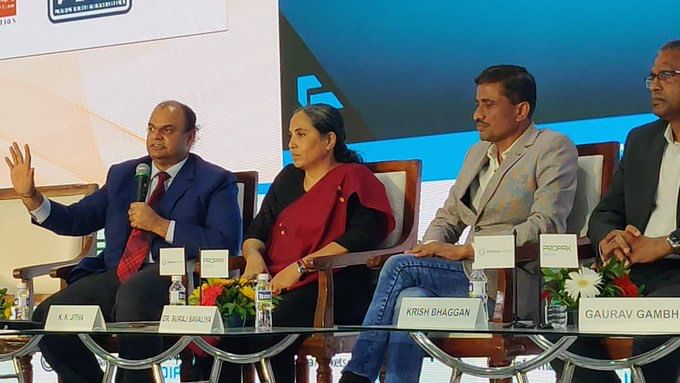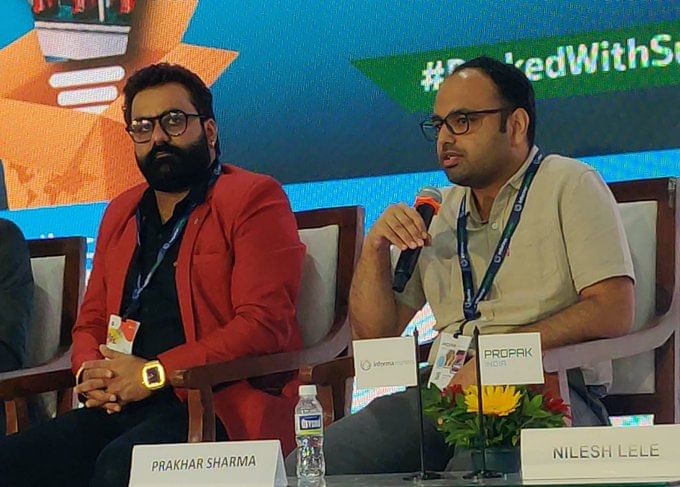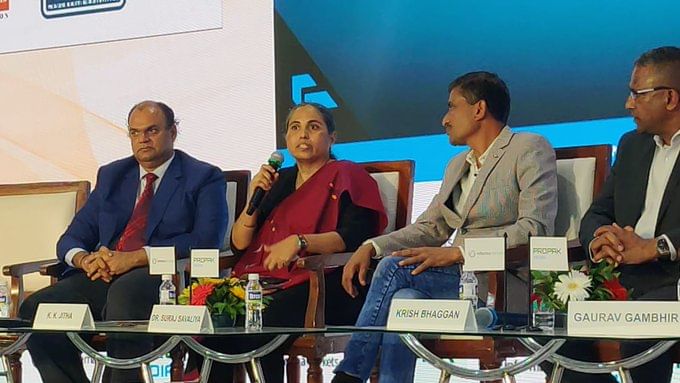Innovation in food packaging at Propak: An explainer
During the ProPak expo at Bombay Exhibition Centre from 17 to 19 August, there was a two-day conference. On day one, industry experts shared truths about sustainable packaging and trends in food processing. Abhay Avadhani reports
05 Sep 2023 | 3316 Views | By Abhay Avadhani
The session which was moderated by Nilesh Lele, president, CASMB comprised of Prakhar Sharma, packaging development manager, Marico; Krish Bhaggan, vice president R&D and QA, Manorama industries; KK Jitha, joint director FSSAI (western region); Suraj Savaliya, managing director, Patson Group of Companies; Ritesh Mathur, founder of F2F Food and Beverage Consultants; and Gaurav Gambhir, founder and managing director, Shubh Food Industries.
Nilesh Lele (NM): What are some of the trends that you're seeing with regards to sustainability and innovations in food processing, as well as packaging?
Suraj Savaliya (SS): Initially we had started our activities in the process of fruits and vegetables. The company went through expansion every year. Today, we provide mango pulp, frozen foods and vegetables, RTE; and convenient foods. I feel sustainability and the technology trends in our industry must go hand-in-hand. We keep innovating every year in our business. For example; we manufacture canned mango pulp which has a shelf life of two years at room temperature. For the last three years, we have been processing the mango pulp in such a way that does not add sugar.

Suraj Savaliya of Patson
We have changed the product, our portfolio, the packaging, according to the consumer behaviour. And these innovations are being appreciated by consumers in western countries like Canada, European countries, Australia, New Zealand and the USA. Innovation holds the key; and innovation has a bright future.
Gaurav Gambhir (GG): Shubh provides private labelling of food and spices. When we talk about innovation, the customers are conscious about what they want. That is the reason why we are launching India's first masala, which you can just spray on your food. Once you do so, it will change the flavour within ten seconds. The name of the brand is Spicy and we are launching it during the Diwali season. In terms of packaging; quality, as well as values and ethics, India has a good brand value.
Ritesh Mathur (RM): Nutrition is the foundation of health and well-being. Today’s trends are safer crop handling, food processing and storage and above all, maintaining the nutrition value. One thing I observed after working with many start-ups is that they look at things differently than the global multinationals. The multinational companies take more time to develop a product than that of a start-up. The start-ups look to develop a new product within the span of six months. Start-ups look at the things which are missing from the industry eco-system and focus on providing solutions. With the birth of these companies, the trend keeps evolving.

Ritesh Mathur of F2F
KK Jitha (KJ): What my fellow panellists have discussed centres around consumer demand, and how the consumer expects clean labels and making healthy choices. For the use of new ingredients or new molecules in the industry for food formulation, FSSAI comes into the picture. It has the responsibility to ensure the safety of these molecules and the safety of the new ingredients. Also, FSSAI has introduced a system of “new product approval” for all the innovations that have been taking place in the food industry. Our aim is to find a healthy balance between safety, nutrition, and sustainability.
Prakhar Sharma (PS): There's a lot of awareness in the Indian market. In terms of sustainability, there are paper and cardboard trays, wooden cutlery, paper straws and compostable bags. In terms of recent launches, Coca-Cola and Pepsi have launched a 100% rPET Kinley bottle in the market, and FSSAI has approved the use of 100% rPET for food products. Five or ten years ago, sustainability was equivalent to downgauging the packaging material in the minds of the industry. Now it is different. Awareness is increasing, new regulations are being introduced, and consumers opt for green packaging. The commitment has been strong by the companies, to use 100% recyclable and sustainable packaging.

Prakhar Sharma of Marico
The point is, the entire scenario is changing, and the circular economy is getting developed. The wide gap between demand and supply is getting reduced. Furthermore, sustainable packaging improves the brand image.
NL: What are some of your packaging initiatives - and what more are your customers asking for?
GG: We have to change your packaging. Indian spices were packed in cardboard boxes. Today, we have shifted it to plastic containers. In India, I think 2 or 2.5% of consumers are opting for luxury brands. So we have verticals which cater to the commercial business. Also there is a luxury category which includes our organic range.
SS: The packaging we deploy should be cost effective, and innovative. From a canning and agro processing point of view, I want to share an example. We process tomatoes in cans, so the packaging material cost contributes 55-60% of the final cost. This sounds bizarre and outdated. So with the cost-effective packaging and production, consumers benefit, and the product moves fast. We can enter international markets with this.
NL: Packaging should be cost effective, but at the same time sustainable. But a layman may find it a little difficult to understand. Prakhar Sharma, can you explain this conundrum? Also is there a negative perception about plastics?
PS: Plastic is not a problem. What we need to address on a war footing is waste management. Five to ten years ago, we used to downgauge the packaging materials in terms of cutting the costs. Today, with the regulations and their implementations, it is difficult to provide the same pack for all products. It is mandatory to use PCR and all the non food packaging products. For rigid packaging, you have to use at least 30% PCR by 2025. In the coming years the price gap will reduce a bit. The Indian packaging industry is moving in the right direction. He may not be cost effective at this point of time, but in the coming future even those goals will be achieved.
KJ: Although there are regulations in place to phase out plastics, the regulator understands that it is not very easy to phase out the use of plastic in food packaging. More than a year ago, FSSAI had introduced guidelines to convert recycled plastics into food contact packaging materials. That requires a separate approval process because the safety has to be ensured. The manufacturers who have the capacity to convert recycled plastic to food contact packaging materials, have to go through a process of approval. So the regulator is taking an industry-friendly approach vis a vis packaging. Also, we are coming up with new regulations to include new and biodegradable packaging materials into our regulation.

KK Jitha of FSSAI
One of the regulations which is in the pipeline is about GM food regulation. This is because there is concern when we talk about the regulator as well as the consumer requirements.
RM: Consumers want the packaging to reflect the product. If the product talks about plant-based and vegan aspects, then the packaging should send out the same message. The material could be tetra pak instead of plastic bottles. The packaging material stands as a cornerstone of innovation, it ensures that a kitchen staple should consumers with freshness and precision.